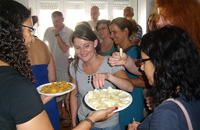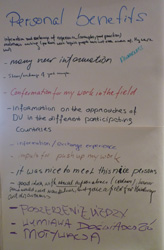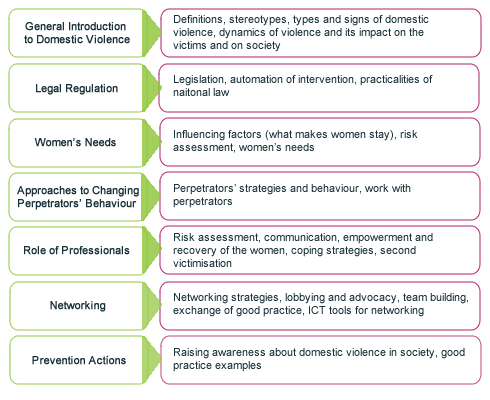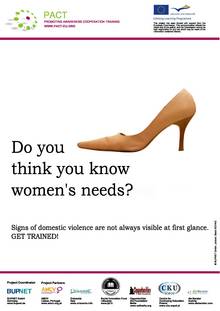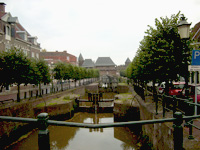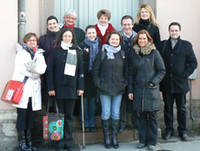
PACT has been funded by the European Commission to promote awareness for communication and training targeting professionals and institutions that actively work in the support chain for women and children survivors of violence. PACT promotes collaboration among stakeholders, offers training and builds a European network of expertise in the field of violence against women and children.
As announced in our August newsletter, we are currently planning our final conference which will take place on December 2nd, 2011, in Kaunas, Lithuania. After the successful event in Lisbon, where representatives of seven national pilots met for a two-day workshop, we hope that this final conference will meet as much interest.
Fortunately this final event is not the end to a successful partnership and team work: four partners have started a new project called E-MARIA (European Manual on Risk Assessment) dealing above all with developing and testing a manual on risk assessment both for professional and victims of domestic violence. In this context we are keen on gathering additional data from professionals working in the field of domestic violence. For this purpose we have developed a questionnaire that is accessible here:
Your contribution will be highly appreciated!
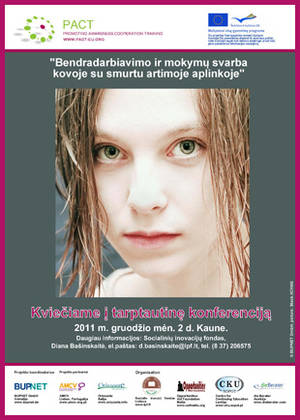
- Lithuanian conference poster
PACT has successfully developed and tested innovative learning modules in the field of domestic violence. The central objective of the PACT training is on the one hand to deepen knowledge about domestic violence among professionals and on the other hand to promote a closer cooperation and networking of all relevant stakeholders at a European level by exchanging knowledge and practice with view to different intervention models. The structure of the training is based on a modular concept, meaning that the section and units of the course can be used independently and consists of face-to-face seminars being complemented by online modules.
During the final conference participants will be given the opportunity to get an overview of the training course methodology and contents. The seven training modules will be briefly presented and the PACT partners will report on highlights from the national pilots as well as on the challenges on the one hand and on the benefits on the other hand.
Conference guests will also be able to visit the e-learning platform and make a tour themselves through the seven modules with support provided by the PACT team.
Besides project related discussions and presentations other relevant aspects will be addressed such as the consequences of new legal regulations in Lithuania related to domestic violence.
Furthermore, the PACT team invited a guest speaker form the Netherlands, Eltjo Lenting, police officer in Amersfoort to give a keynote on how the restraining order is handled in the Netherlands. Here a special role has been assigned to the mayor, who is responsible for the decision as to whether someone receives a temporary restraining order and must leave their home. The keynote will also provide information on how the risk for involved professionals is assessed.
Since risk assessment is an issue of paramount importance, we will also consider the victims’ perspective. Our Portuguese project partner AMCV will bring about how the risk is assessed for the women involved in a violent partnership.
The conference aims at bringing together stakeholders from different sectors such as adult education, domestic violence and policy making; representatives from women’s NGOs, police, social and healthcare organisations as well as interested persons from all over Europe are warmly invited to join.
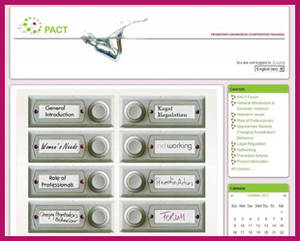
- Homepage e-learning platform
09:30 Registration
10:00 Welcome speeches:
- Representative of the President of Lithuania (to be confirmed)
- Dalia Kuodyte, Committee of Human Rights, Lithuania
- Ausrine Burneikiene, Equal Opportunities Ombudsperson, Lithuania
- Anne E. Derse, U.S. Ambassador to Lithuania (to be confirmed)
10:30 Actions towards diminishing domestic violence in Lithuania. Advisor of the Ministry of Social Security and Labour of Lithuania.
10:50 Outcomes of the European project “Promoting Awareness for Communication and Training in the field of Domestic Violence”. Sabine Wiemann, BUPNET, Germany.
11:10 Presentation of the e-learning platform “Promoting Awareness Cooperation Training”. Sabine Wiemann, BUPNET, Germany.
11:30 Training modules and feedbacks from national pilots
- Module 1: General introduction
- Module 2: Legal regulation
- Module 3: Women’s needs
12:00 Lunch
13:00 Training modules and feedbacks from national pilots
- Module 4: Approaches to changing perpetrators’ behaviour.
- Module 5: Role of Professionals.
- Module 6: Networking.
- Module 7: Prevention actions.
EXPERIENCE EXCHANGE SESSION
Practical approach and challenges – Overview of Lithuanian situation (Kaunas Women’s Society– to be confirmed)
Handling the restraining order in the Netherlands and risk assessment for professionals. Eltjo Lenting, Police Amersfoort, Netherlands.
Risk assessment for survivors. AMCV, Petra Viegas, Sandra Paulos, Portugal.
15:30 Open discussions. Visiting the e-learning platform (in EN and LT), networking and informal talks.
16:00 Closing remarks.
16:15 End of the conference.
You can register for the conference at the PACT project office info@pact-eu.org.

BUPNET GmbH, Göttingen, Germany
Sabine Wiemann, Ines Polzin
www.bupnet.de

AMCV, Lisbon, Portugal
Sandra Paulos, Petra Viegas
www.amcv.org.pt

Social Innovation Fund, Kaunas, Lithuania
Liudmila Mecajeva, Diana Basinskaite
www.lpf.lt

Orizzonte, Città della Pieve, Italy
Margarete Berg
www.orizzonte.info

Opportunities Aid Foundation, St. Julians, Malta
Antoine Gambin, Christina Demicheli
www.oafmalta.org

Centre for Continuing Education, Sopot, Poland
Urszula Hadrych, Sylwia Knot
www.cku.sopot.pl

die Berater, Vienna, Austria
Franz Moticka
www.dieberater.com


 This project has been funded with support from the European Commission. This publication reflects the views only of the author, and the Commission cannot be held responsible for any use which may be made of the information contained therein.
This project has been funded with support from the European Commission. This publication reflects the views only of the author, and the Commission cannot be held responsible for any use which may be made of the information contained therein.

